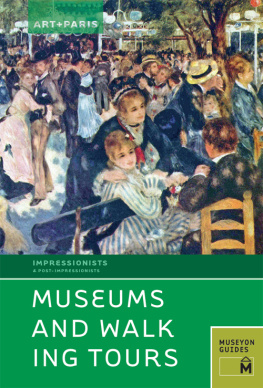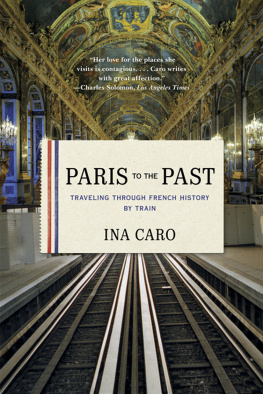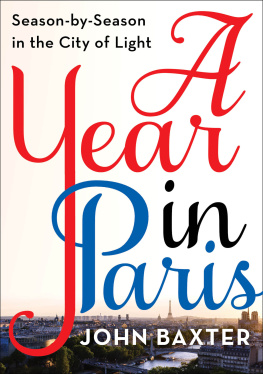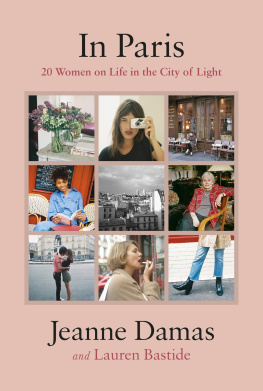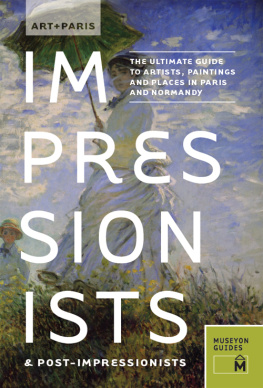Title Page
OUR MAN IN PARIS
A Foreign Correspondent, France And The French
By
John Lichfield
Signal Books
Oxford
Publisher Information
The publishers gratefully acknowledge The Independents kind permission to reproduce and republish the articles in this book
First published in 2010 by
Signal Books Limited
36 Minster Road
Oxford Ox4 1Ly
www.signalbooks.co.uk
Digital edition converted and Distributed in 2012 by
Andrews UK Limited
www.andrewsuk.com
John Lichfield, 2010
The right of John Lichfield to be identified as the author of this work has been asserted by him in accordance with the Copyright, Design and Patents Act, 1988.
All rights reserved. The whole of this work, including all text and illustrations, is protected by copyright. No parts of this work may be loaded, stored, manipulated, reproduced or transmitted in any form or by any means, electronic or mechanical, including photocopying and recording, or by any information, storage and retrieval system without prior written permission from the publisher, on behalf of the copyright owner.
Design: Bryony Clark Cover illustration: Russ Cook Cartoons: Russ Cook
Printed in India
Dedication
For Margaret, my best source
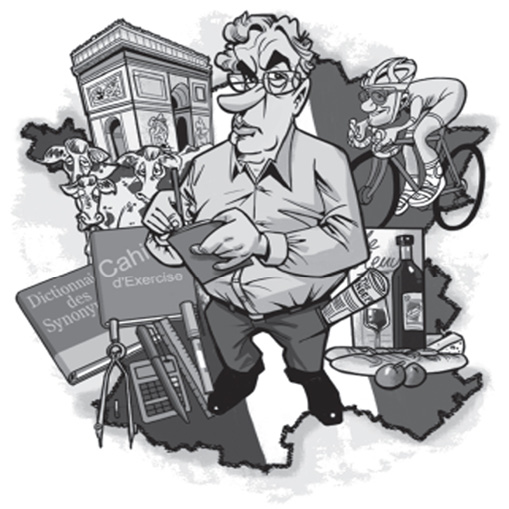
Introduction
Journalists are seekers of sensation, lovers of the extraordinary. The ordinary is the business of social historians, statisticians, novelists and other bores. Who wants to know about what happened yesterday if it is the same thing that happened last week and last month and last year?
Actually, we all do. Especially if it is the ordinary/extraordinary: not what happens in our own lives, or to our own families, but in the lives of the people next door. Or the country next door.
We British are very nosy about our nearest neighbours; much nosier, it has to be admitted, than they are about us. We especially like to hear of the petty, or not so petty, failures or problems of our cross-Channel cousins.
We have an inferiority-superiority complex about the French. They are unreliable, devious, selfish, rude and oversexed. Their food is over-rated. Chteau Supercilious is rubbish compared to Koala Creek. They are always on strike / blocking the Channel Tunnel / directing busloads of Afghans to Calais / making incomprehensible movies / giving billions of euros in UK-funded subsidies to greedy, hopeless French farmers.
At the same time, we have an unpleasant suspicion that the French are better looking than we are / have better and more sex / eat better / have better weather / better footballers / a better health service / more open space / higher mountains / more beaches / better schools / better motorways / better railways / better lives.
The French spend less time staring over the Channel than we do. They have other, equally irritating / fascinating neighbours to the north, east and south. They are, in any case, chiefly fascinated by themselves or, la limite, the Americans. All the same, our schizophrenic suspicions are mirrored by persistent French prejudices, and anxieties, about the British.
We are, seen from across the Channel, emotionally retarded / badly dressed / under Americas thumb / uninterested in food / awkward about sex. We are either frigidly conventional or wildly eccentric or callously violent. We are also, the French fear, more enterprising than they, more innovative and less hung-up by tradition.
The typical British man, according to French stereotypes, either: a) wears a bowler hat; b) has purple hair; c) has a shaven skull and knuckle-dusters. The typical British woman either: a) wears a dull, sensible skirt; b) has purple hair; c) gets drunk before breakfast.
We think of the French as a race of vague, over-emotional, unreliable poets. The French see themselves as a race of rational mathematicians and engineers. We think of ourselves as a race of polite, pragmatic, creative introverts. The French see us as a race of devious, drunken, emotionally-challenged egotists.
My son Charles is an accidental and often unwilling hero of many of the articles in this book. He went through the French education system from six to eighteen. He then went to university in Britain assuming, with a sigh of relief, that he was leaving his parents and going home at the same time. The British students, although friendly, insisted that Charles was irredeemably French. The young Britons appeared equally odd to his French-educated eyes: they are, he says, a generation of vegetarian alcoholics.
Our two countries, so close and so historically entwined, live largely back-to-back lives. The Channel is still one of the worlds great cultural fault lines, like a European Rio Grande. And yet we are more interconnected than at any time since the Hundred years War. Over 300,000, mostly young, French people now live in Britain. Over 250,000, mostly middle-aged or older, British people now live full-time in France.
For thirteen years, I have been one of them, as the Paris cor- respondent of The Independent and The Independent on Sunday. The articles reprinted here are only a small fraction of the thousands of stories that I have written in that time. In theory, these were the ephemeral articles; the throwaway columns; the soft diaries about my familys life in France, the chance encounters with odd, or ordinary, French people, both in Paris and in my beloved adopted village in Normandy.
There is little here about high-politics or diplomacy or elections or plane crashes or riots or floods or murders. There is nothingor very littleon the serial soap operas which have dominated news from France in the last thirteen years: the unfortunate accident of Diana Princess of Wales; the Anglo-French beef war; the insoluble conundrum of the illegal immigrants piling up in Calais; the problems of the multi-racial suburbs; the French stand against the Iraq war; the French non to a European constitution; the final years of Chiraquie and the rise of Nicolas Sarkozy.
I wrote many articles about such things. They all seemed hugely important the time. And yet I noticed something strange. The letters or emails that I received from readers were rarely about my (hem hem) hard-hitting, ground-breaking news articles or deeplyconsidered, carefully-crafted opinion articles. Readers responded far more often to a diary column about how my kids were dealing with the French school system; or the casual iniquities of my struggling, hippy-farmer neighbour in Normandy; or my wifes discovery of a forgotten gallery in the Muse dOrsay.
In writing about such things, I was often breaking the first rule of news journalism. I was trying to describe the ordinary, rather than the extraordinary. And yet the ordinary and the everydayif it is someone elses ordinarysometimes touch people more than the dramatic and the would-be important. Hence, one assumes, the triumph of the blogosphere. Who cares now about Jacques Chiracs campaign speeches in 2002? Or the reasons for the French ban on British beef in 1999?
At times I was given a fixed space in the newspaper each week in which to write about whatever amused or interested me. At other times, the columns and diaries had to compete for space with floods, or fires, or wars, or the diaries of other foreign correspondents who were also trying to describe the ordinaryextraordinary in their own countries. Sometimes, I was burning to get something off my chest. More often the blank space and deadline loomed like an appointment with the hangman (or guillotine operator). There are articles here that were written in desperation to fill a space. Others describe events which touched me deeply, like the death in his own small plane of my friend, Bernard, the flying dairy farmer.
Next page

